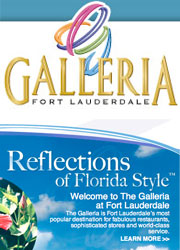The summertime is often a wonderful time for doing things outside, but it's also the worst time of year for people who suffer from allergies. Individuals with allergies may experience symptoms such as sneezing, itchy eyes, and a runny nose when the weather is warm because warm weather brings an increase in the amount of pollen and other allergens. However, there are measures that can be taken to reduce your contact with these irritants and protect yourself from experiencing allergy symptoms.
Minimizing Exposure
“The most important step you can take to reduce your exposure to pollen and other allergens is to keep windows closed, especially during peak hours of pollen production,” said Benjamin Klein, D.O., a family medicine doctor with the Broward Health Physician Group.
This is because pollen particles can easily blow in through open windows, leading to a buildup of allergens in your home or office. To further protect yourself from airborne allergens, you may want to consider wearing a mask when outdoors. Wearing a mask can help filter out pollen particles and other allergens that could otherwise be inhaled. If you have a respiratory condition such as asthma, it is even more important to wear a mask when outside.
Air Filtration
Installing air filters in your home or office is an effective way to reduce exposure to pollen and other allergens. “Air filters can help capture and remove particles from the air, reducing the number of irritants that may trigger allergic reactions,” Dr. Klein said.
Air filtration systems work by trapping airborne pollutants on a filter media, which is then removed when you change the filter.
“This helps keep indoor air clean by removing dust, pollen, pet dander, mold spores, and other allergens that could otherwise be inhaled,” Dr. Klein said.
Many types of air filtration systems are available for purchase at hardware stores or online retailers; some models even come with built-in sensors that detect changes in indoor air quality and alert you when it's time to replace the filter media.
Medication and Allergy Shots
When it comes to managing summer allergies, over-the-counter medications and allergy shots can be effective methods of reducing symptoms. While these approaches are not always necessary for mild cases of seasonal allergies, they may provide relief for those with more severe reactions or who do not respond well to other measures.
“Over-the-counter medications are typically used to reduce symptoms such as sneezing, itching eyes, and a runny nose,” Dr. Klein said.
Antihistamines, decongestants, and nasal sprays are the most commonly used OTC allergy medications.
“It is important to follow the directions on the medication package for best results; if symptoms persist or worsen after taking an over-the-counter medication, you should consult with your doctor,” Dr. Klein said.
Allergy shots (immunotherapy) involve repeated injections of a small amount of allergen so that the body gradually builds up a tolerance to it. Allergy shots may be recommended when other measures have failed to provide relief from severe allergies; however, they can take several months before becoming effective and should only be administered under the supervision of a medical professional.
Clothing
Choosing the right clothing can help reduce your exposure to pollen and other allergens in the summer. While it may not be possible to completely avoid allergens, wearing clothing made from natural fibers can minimize their effects on you.
When shopping for clothes during allergy season, look for items that are made of natural materials such as cotton or linen rather than synthetic fabrics like polyester or rayon. Natural fibers allow air to circulate better and don’t trap dust and pollen particles as easily as synthetic fabrics do. Additionally, it's crucial to choose breathable materials so that sweat doesn't collect on your skin, which will help lessen irritation from coming into contact with allergens. If possible, opt for lighter colors, which won’t attract as much sunlight and heat, both of which can make allergic reactions worse.
It is also important to pay attention to what type of fabric finishes have been applied when purchasing new clothes; some finishes, such as waxes, oils, dyes, or waterproofing agents, may contain chemicals that could irritate sensitive skin or cause an allergic reaction.
Healthy Lifestyle
According to a number of studies, maintaining a healthy immune system requires ensuring that one gets an adequate amount of sleep, consumes a diet that is both nutritious and well-balanced, drinks an adequate amount of water, and engages in regular physical activity.
“Resting for enough time allows the body to repair itself and get ready for any new challenges it might encounter,” Dr. Klein said.
Your body's ability to ward off symptoms of seasonal allergies may improve if you consume a diet that is balanced, nutritious, and abundant in freshly prepared fruits and vegetables. Consuming foods that are high in antioxidants and other nutrients, such as vitamins C, E, B6, and B12, selenium, zinc, omega-3 fatty acids, and magnesium, can help strengthen your immune system.
“Drinking a sufficient amount of water is necessary for maintaining proper hydration, which in turn assists in the removal of waste products from the body and the transportation of essential nutrients to the cells,” Dr. Klein said.
In addition, engaging in regular physical activity is a powerful method for enhancing one's immunity. This is accomplished by improving circulation and elevating oxygen levels throughout the body. Aim for at least thirty minutes of physical activity on most days of the week; activities such as walking, running, or cycling are excellent ways to improve overall health and reduce symptoms associated with allergic reactions.
Key Takeaways
Keeping allergy symptoms under control during the warm summer months can be challenging, but it doesn't have to be impossible. You can lessen the severity of your symptoms and make it easier for you to spend time outside by taking measures such as reducing your exposure to allergens, installing air filters, making an investment in high-efficiency particulate arresting (HEPA) filters, wearing protective clothing, and leading a healthy lifestyle. With these helpful hints under your belt for managing summer allergies, you should be able to take advantage of everything that this season has to offer without having to worry about experiencing unpleasant allergy reactions.
To schedule an appointment Dr. Klein call 954-888-3900.






















